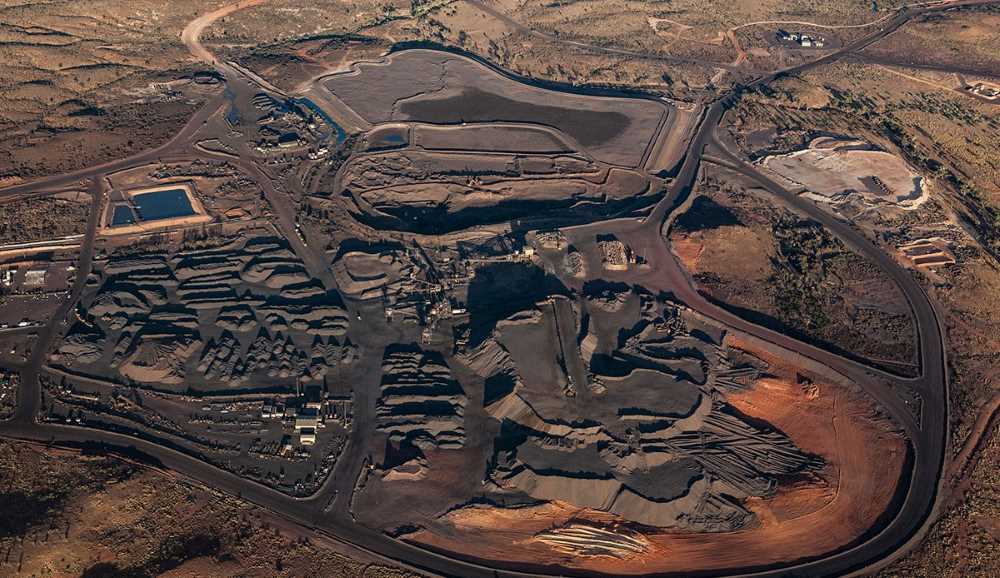
After dedicating significant time and resources to hydrogen fuel cell technology, Fortescue has decided to pursue battery-electric technology for its haul truck fleet instead.
Despite initially favouring the Hydrogen Haul Truck model, Twiggy Forrest and his brand are now betting on large-scale battery-electric technology. Initially, the general thinking was that batteries were too large to make sense; however, lighter units have since entered the market, reestablishing battery technology as a realistic option.
According to Fortescue’s director of decarbonisation, Christiaan Heyning, batteries will win the fight for haul trucks over the next decade.
“We do believe that batteries in trucks are going to be the most favourable solution, maybe not in every single haul, but for most haul routes,” he told the Energy and Mines Australia Summit in Perth last week. “The biggest reason for that is if you don’t use direct electrification, it would need to have hydrogen. Hydrogen requires triple [the] amount of power to do it, so you need a lot more generation capacity, a lot more land disturbance, and more transmission, so there’s a lot of inefficiencies.”
It seems reality is setting in for some of Australia’s most bullish proponents of green hydrogen.
From a failed hydrogen project to a success: Rio has announced a partnership with H2 to supply iron ore pellets to its flagship steel smelter in Boden, Sweden. The mining major will supply H2 Green Steel from its Iron Ore Company of Canada (IOC), allowing the company to establish large-scale low-carbon steel production.
An industrial startup, H2 Green Steel hopes to accelerate the shift towards low-carbon steelmaking via its plant, set to become one of the world’s first large-scale producers of clean iron and steel.
It will be able to process direct reduction FE pellets into Hot Briquetted Iron (HBI) and smelt steel via an electric arc furnace powered by green hydrogen. The plant will also house one of the planet’s largest electrolysis plants for producing green hydrogen.
According to H2 chief executive officer Henrik Henriksson, the deal with Rio marks a “significant milestone” for the startup.
“Not only by securing a supply of the high-quality iron ore needed for our green steel production but also because we have a buyer for a portion of the HBI we initially expect to produce,” he said. “Rio Tinto is a global leader in the mining industry, and we welcome its concrete actions to accelerate the decarbonisation of the steel industry.”
According to new state figures, the number of young women starting apprenticeships in Queensland’s resources sector has tripled over the past decade. Queensland’s Department of Employment, Small Business and Training reported that more women and Indigenous people increasingly occupy highly paid mining and energy sector roles.
The Queensland Resources Council (QRC) Chief Executive Ian Macfarlane said the results reflect the work to build a diversified resource workforce.
Women now account for 35% of total apprentice and trainee commencements in Queensland’s resources sector. In addition, the percentage of Indigenous trainees and apprentices in the resources sector rose from 13% to 18% over the same period.
Across the sector, apprentices and trainees are completing their courses at much higher rates than the national average. Success rates are sitting at 76%, which is around 20% higher than the national average for all industries.
The QRC’s educational arm, the Queensland Minerals and Energy Academy, runs workshops and programs to directly support the pipeline of new apprentices in Queensland’s resources sector.
If you’re interested, you can learn more here: https://qmea.org.au/
Dust suppression is a critical issue in the world of mining and resources.
Learn more about GRT’s industry-leading and IoT-connected SMART Dosing Units, and discover how we’re driving better dust suppression solutions for all!
Your feedback is important to us.
If you enjoyed reading this Global Road Technology industry update and found it informative, please let us know by leaving a REVIEW.
Are environmental regulations, health and safety concerns or potential profit loss a concern right now?
Contact Us Now